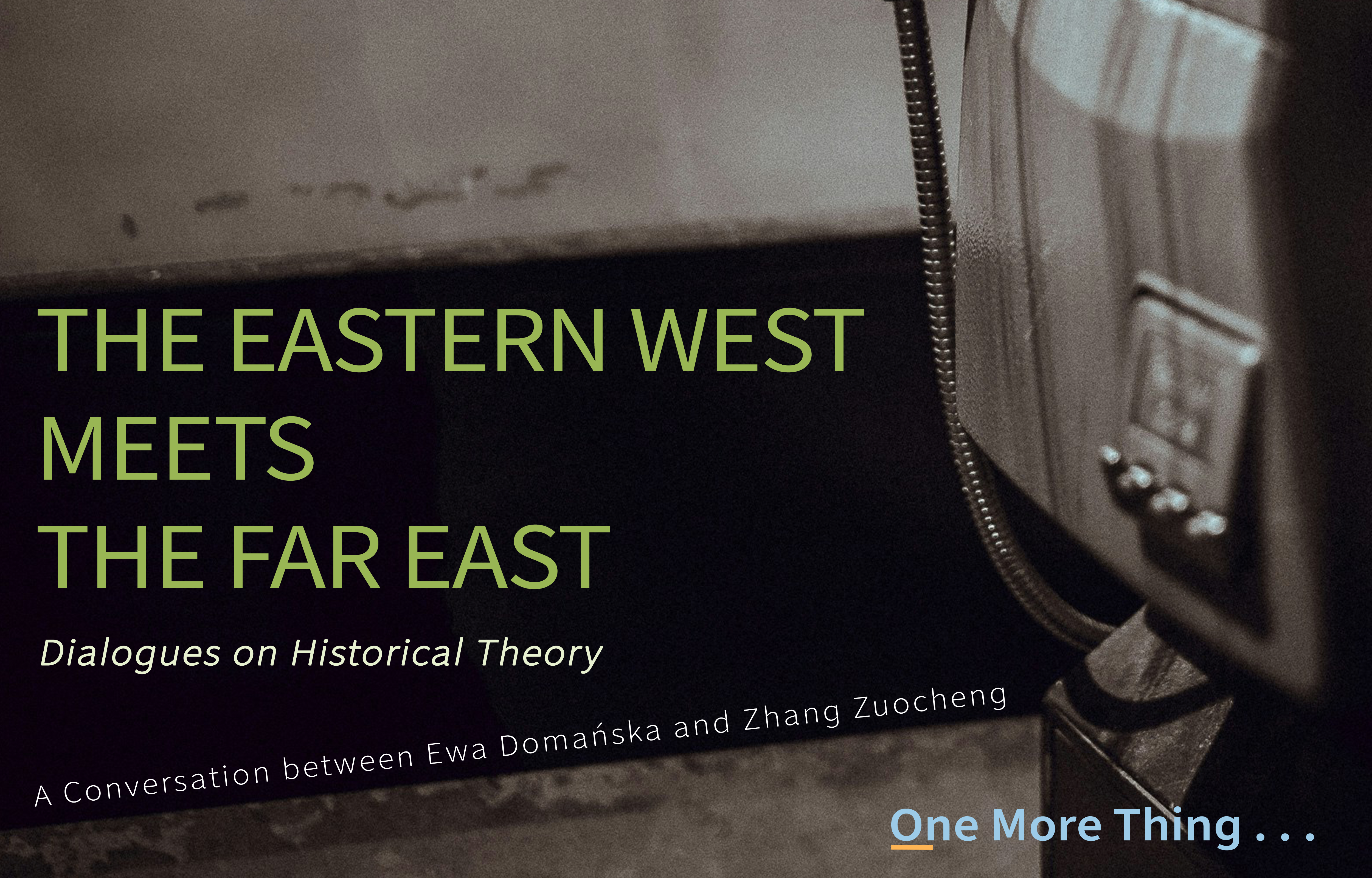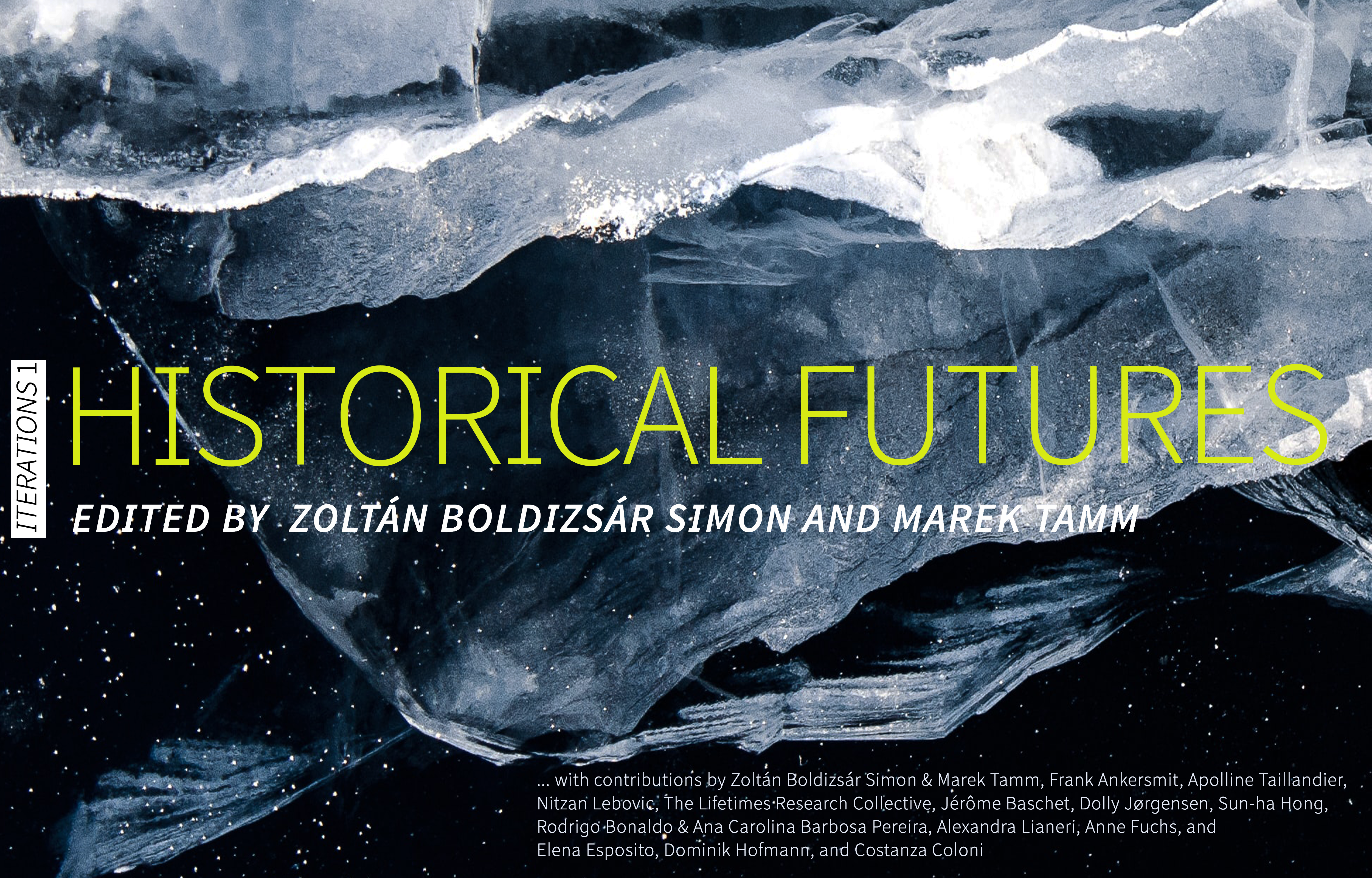Contact us
History and Theory
41 Wyllys Avenue
Middletown, CT 06459-0001 USA
860.685.3292
historyandtheory@wesleyan.edu
most Viewed
DIPESH CHAKRABARTY, "Anthropocene Time," History and Theory 57, no. 1 (2018)
SUN-HA HONG, "Predictions without Futures," History and Theory 61, no. 3 (2021)
RIAN THUM, "What is Islamic History?," History and Theory 58, no. 4 (2019)
DOLLY JØRGENSEN, “Extinction and the End of Futures,” History and Theory 61, no. 2 (2022)
MONIQUE SCHEER, “Are Emotions a Kind of Practice (and Is That What Makes Them Have a History)? A Bourdieuian Approach to Understanding Emotion,” History and Theory 51, no. 2 (2012)
Most Cited
MONIQUE SCHEER, “Are Emotions a Kind of Practice (and Is That What Makes Them Have a History)? A Bourdieuian Approach to Understanding Emotion,” History and Theory 51, no. 2 (2012)
DIPESH CHAKRABARTY, "Anthropocene Time," History and Theory 57, no. 1 (2018)
WULF KANSTEINER, “Finding Meaning in Memory: A Methodological Critique of Collective Memory Studies,” History and Theory 58, no. 1 (2018)
MICHAEL WERNER AND BÉNÉDICTE ZIMMERMANN, “Beyond Comparison: Histoire Croisée and the Challenge of Reflexivity,” History and Theory 45, no. 1 (2006)
ANJA KANNGIESER AND ZOE TODD, “From Environmental Case Study to Environmental Kin Study,” History and Theory 59, no. 3 (2020)
Like us on Facebook
Current Issue
PHILOLOGY NOW: EDITORS’ INTRODUCTION
Valeria López Fadul & Courtney Weiss Smith
In this introduction to the “Philology Now” theme issue, we make a case for “philology” as a useful sign under which to consider the ways historians are already working with words in their efforts to understand the past. Doing so, we recognize that “philology” has been variously defined. Rather than being normative or prescriptive about what philology entails, we proceed from a historical awareness that, in many of its uses, the word binds interrelated concerns of language, history, and method. . . . Read more →
HISTORY AND THEORY AND PHILOLOGY NOW: TOGETHER IN THEORY
Nancy Partner
In English-speaking academe, philology has virtually disappeared as a defined discipline, although its traditional array of skills and techniques for reading, editing, and interpreting texts are indispensable to fields ranging from biblical studies through every language and literature and are central to historical research. Philology's status “now” seems to be that the analytic skills for dealing with texts, skills developed over centuries, have been appropriated by multiple academic specialties while the framework that used to contain them has been dismantled and nearly forgotten. . . . Read more →
THE STAKES OF PHILOLOGY: REALITIES, ORIGINS, FUTURES
Helge Jordheim
What does philology mean today? And what can it do in the future? In this article, I respond to these questions by performing—again—a “return to philology,” as Paul de Man proclaimed in the 1980s. To engage with the present and future of philology, I return to nineteenth-century Germany and to some of the controversies that played out between the main proponents of the new discipline, including Gottfried Hermann, August Boeckh, Friedrich Nietzsche, and Ulrich von Wilamowitz-Moellendorf. . . . Read more →
CHRONOPOLITICS OF CLASSICAL PHILOLOGY THROUGH THE NON SEQUITUR
Alexandra Lianeri
This article argues that classical philology can play a vital role in debates about the importance of philology now and configures a genealogy that may contribute to the quest for alternative philologies. Building on Werner Hamacher's definition of philology as “love of the non sequitur,” I turn to founding texts of Western classical philology by Johann Joachim Winckelmann, Friedrich August Wolf, and August Böckh in order to interrogate their identification with modern classicism and historicism. . . . Read more →
TOWARD A CONJECTURAL HISTORY OF CONJECTURAL HISTORIES
Anthony Grafton
Most intellectual historians use the term “conjectural history” to designate a new form of speculative history created in eighteenth-century Scotland by Adam Smith and a few others. These writers traced the development of human society and culture through conjectural reasoning based on philosophers’ views about human nature and travelers’ accounts of “primitive” peoples. . . . Read more →
THE WIND THAT MELTS THE ICE: REFLECTIONS ON THE SCALE OF PHILOLOGY
David B. Lurie
The global history of philology, like that of writing systems and other technologies, is characterized by diffusion and adaptation. These processes are made more difficult to grasp if we maintain a presentist focus on the Western philological tradition and its deeply Eurocentric legacy. Arguing against those who wish to resolve the problem by abandoning the term “philology” as irredeemably tainted, I propose that we introduce the notion of scale. Heuristically, it is helpful to think in terms of “small-p” philology, the low-level quotidian strategies and tools used by students and scholars to solve problems of textual interpretation, and “big-P” Philology, a larger ideological edifice linked to metahistorical and transhistorical narratives about abstract concepts such as civilization, race, and religious truth. . . . Read more →
TEACHING SPANISH IN THE UNIVERSAL MONARCHY: TOMÁS PINPIN'S GRAMMAR FOR TAGALOGS (1610)
Alan Durston
In 1610, a Tagalog printer named Tomás Pinpin published a Spanish grammar in Tagalog that was intended to help natives avoid errors and misunderstandings in their interactions with Spanish colonizers. This article attempts to clarify the book's genesis and to contextualize it within the global expansion of Spanish. Pinpin exemplifies a pattern whereby Spanish was taught by colonial subjects on their own initiative and following their own criteria. At the same time, his grammar is associated with a missionary translation project in which the printers, among them Pinpin himself, were non-Spanish. This text thus offers an opportunity to broaden understandings of early modern colonial translation and linguistic description by stressing the creations of native collaborators. Read more →
COSMOPOLITAN PHILOLOGY AND SACRED GRAMMAR
Alexander Jabbari
Persian developed a formal grammatical tradition comparatively late in its thousand-year history as a lingua franca. This article takes up the emergence of Persian grammar within the larger trajectory of Persian philology. It explores questions about why and when such a tradition developed in Persian by closely analyzing the earliest formal grammar of Persian in the language: Minhaj al-Talab (Program of Study; ca. 1660), which was written by a Hui Muslim scholar in eastern Qing China. This text is contrasted with a more mature later work of Persian philology from Mughal India: Musmir (Fruition; 1750s). Through comparative study of these texts and by drawing comparisons to Arabic, Sanskrit, Chinese, and other languages, the article complicates characterizations of Persian and the Persianate as cosmopolitan and explores the complex relationship between cosmopolitan and vernacular and between Persian and Islam. . . . Read more →
DEAD LETTERS AND LIVING WORDS: IBERIAN ARABISM AS POLITICAL PHILOLOGY
Claire Gilbert
A surge of Arabic studies in Spain and Portugal during the eighteenth century responded to specific anxieties connected to national identities. Philology offered a means to contend with Iberia's Islamic past through present-day geopolitics that seemed to threaten national futures. A comparison of lexicographic projects from the last decades of the century shows how philologists relied on translation strategies of domestication and foreignization to recast the history of the Arabic language and its users in Spain and Portugal. Such strategies merged historical and ethnographic techniques that mapped peoples, places, and languages. . . . Read more →
IMPLICIT COMPARISONS: VISUALITY AND THE INTERLINEAR MANUSCRIPT PAGE
Ronit Ricci
A central question for European philology, informed by various agendas and ideologies, concerned comparison and the positing of hierarchies among languages. With this “traditional” question of philology in mind, but hoping to think in less traditional ways, this article asks how comparative understandings of Arabic and local languages of the Indonesian archipelago may have been reflected in nineteenth- and twentieth-century Islamic manuscripts that contain interlinear translations. These Islamic interlinear translations contain a text written in Arabic with a translation into Javanese or Malay appearing in between the lines of Arabic text. Such translations often follow a word-for-word model, striving to replicate the source down to the level of prepositions and word order even when the result is far from idiomatic. . . . Read more →
ON CONCEPTS AS HISTORICAL FORMS
Peter de Bolla
What are the consequences of holding fast to the axiom that words are not the same thing as concepts? This article explores some of them in relation to the tensions between two different but overlapping approaches to the history of concepts: philology and computationally informed historical semantics. The methods utilized were developed in the Cambridge Concept Lab and essentially comprise a measurement for word associations that can then be exported into comparative frameworks for tracking the evolution of concepts over time. . . . Read more →
PHILOLOGY IN AFRICAN HISTORICAL INQUIRY: TROUBLING THE MEANING OF GIRLHOOD IN BANTU SPEECH COMMUNITIES
Catherine Cymone Fourshey
Language and history are inextricably entangled with each other, but can one be used to illuminate the other? This article focuses on the generations of philologists and Bantu speakers who have collectively, in different ways, obscured and illuminated our understandings of such categories as gender and childhood. In particular, it challenges the antiquity of girlhood as a historical designation in eastern and central African Bantu speech communities. It addresses questions regarding philology's relevance in studying ancient Bantu speakers’ practices marking gender and generation as characteristics of childhood and identity. . . . Read more →
PLANETARY CONCEPT-WORK: PHILOLOGY, UNTRANSLATABLES, LANGUAGE JUSTICE
Emily Apter
Starting with an example of philological method drawn from Leo Spitzer's essay titled “Linguistics and Literary History” (1948), which, for many years, served as a foundational text of the discipline of comparative literature, this article delineates some of the reasons why philology, especially in its most specialized guises, became an outmoded discipline in contemporary pedagogies of the humanities. A case is made, however, for “philology now” in the form of plurilingual concept-work and translation theory. . . . Read more →



